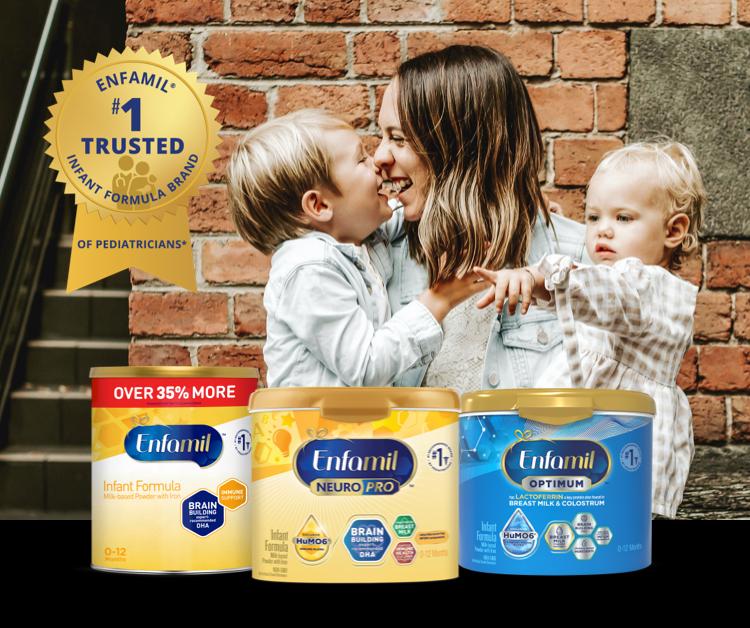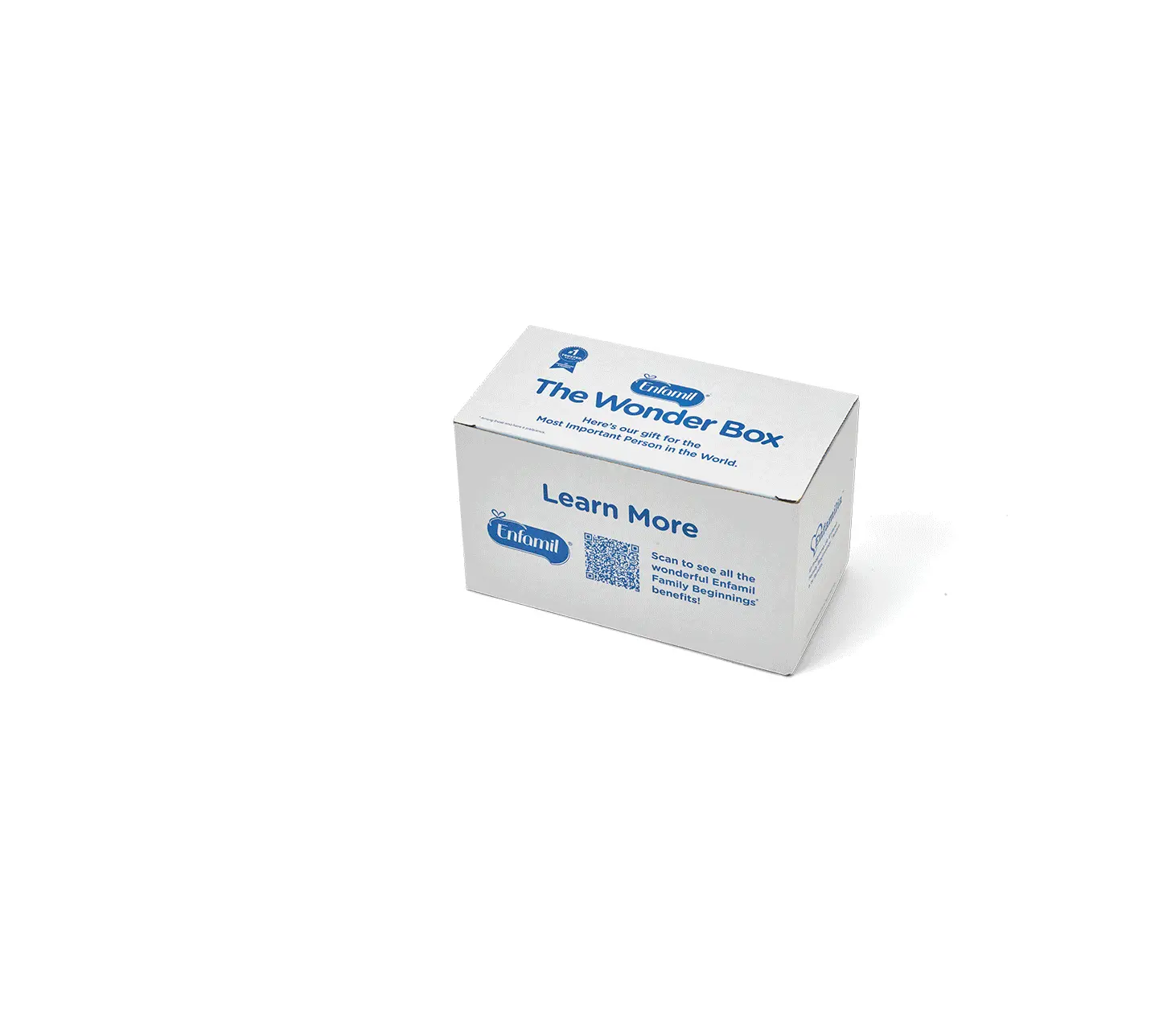No Enfamil products are affected by the recent recall initiated by another manufacturer. Learn more about our quality standards.

Everyday baby formulas for everyday baby nutrition. Explore all Enfamil® baby formulas.
*Among those who have a preference
Enfamil offers different baby formulas and products that can support the health and wellbeing of your baby. We are the #1 baby formula recommended by pediatricians. We have worked with nutritional experts for 100 years and continue to develop different baby formulas, including newborn and infant formulas.
Babies typically drink formula in the first year of their life. Newborns 0-3 months drink exclusively breast milk and formulas. Although, it can vary from child to child when a baby fully transitions from breast feeding and formulas to real food. After six months old parents usually start weaning off formulas and try to adapt other foods into the diet. As the baby grows, they typically consume less baby formulas and breast milk. As your baby grows to a Toddler, after the year mark, they usually shift into more solid foods and drink milk.
Every baby is different when it comes to feeding and selecting a baby formula that’s best. Be sure to consult with your doctor and consider your own baby’s needs. It’s good to listen to your baby and keep in mind their bellies are tiny and may not need as much food as you think. How much formula you feed your baby also depends on whether you are breastfeeding as well or only feeding baby formulas.
Always get to know your infant and watch what works for them. Crying and being moody can be signs of hunger, and it can also be signs of other underlying things going on, including how their diet is affecting them. As parents you don’t want to overfeed your baby, but rather, want to set a solid healthy foundation so your baby can get nutrients for their body and mind. If your baby is more fussy, consider switching formulas and look for allergens that may cause sensitivities. There are specialty baby formulas developed for unique infant needs and some brands have hypoallergenic baby formulas as well. Ideally, you want a formula and feeding schedule that can keep your baby satisfied and happy.
There are pros and cons to using baby formulas. Whether you use baby formulas is a personal choice. Whether you decide to breastfeed or use formula, you should talk to your doctor about making sure your baby is getting enough vitamin D. You will want to research baby formula brands and understand their purpose, ingredients, and find which nutrients can support the health of your baby. Always check with your doctor and get recommendations too.
